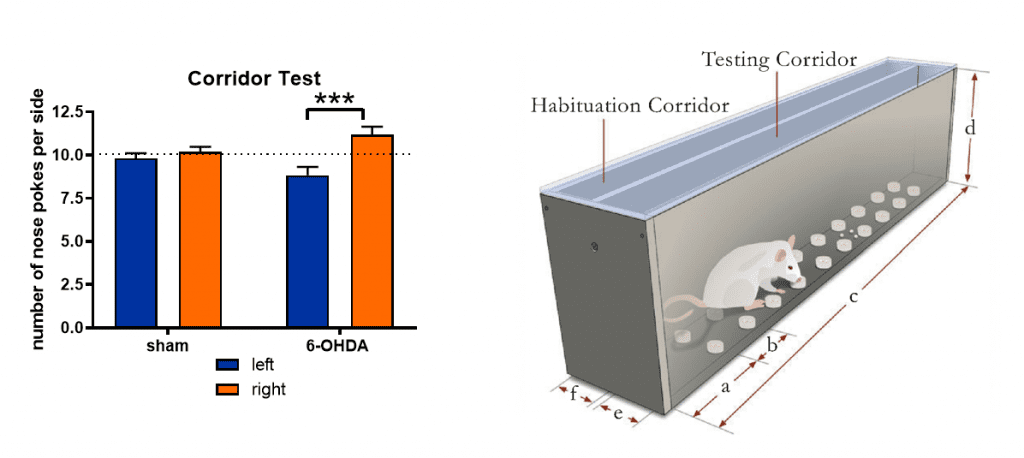The corridor test was first described by Dowd and colleagues in 2005. It is a drug-free behavioral test aimed at assessing lateralized sensorimotor neglect. It is sensitive to the unilateral dopamine-denervating lesion and therefore commonly used in the 6-OHDA model. It is a valuable addition to tests measuring lateralized motor impairment, such as the cylinder test or tests that are assessing the severity of the lesion, such as the rotation test.
The apparatus consists of a long narrow corridor with ten pairs of flanked lids. Each lid contains five to ten sugar pellets. To reduce exploratory behavior during testing, animals are habituated to the corridor for ten minutes on two consecutive days before the first test day. During habitation, pellets are scattered across the floor of the corridor. On the testing day, exploratory behavior is further minimized by placing the animal into a corridor, that is identical to the testing corridor in terms of size and appearance but does not contain any sugar pellets. The testing trial begins when the animal is placed into one end of the testing corridor. Then, the animal is free to explore, turn around and eat pellets. The main measured parameter is a retrieval number, where a ‘retrieval’ is defined as the animal poking its nose into a container. No matter if the animal eats the pellet or not. The number of retrievals from the animal’s left and right side are counted. The trial is completed once an animal performed a total of 20 retrievals or after a maximum trial time of five minutes. For all three days – two habituation days and a testing day – animals are fasting overnight and food is returned to their home cage after completion of the test.

Figure: Number of nose pokes per side in the corridor test after a 6-OHDA lesion of one hemisphere. The dotted line represents number of evenly distributed nose pokes (retrievals). Mean + SEM; sham: n = 16; 6-OHDA lesion: n = 26. One Way ANOVA: ***p<0.001.
